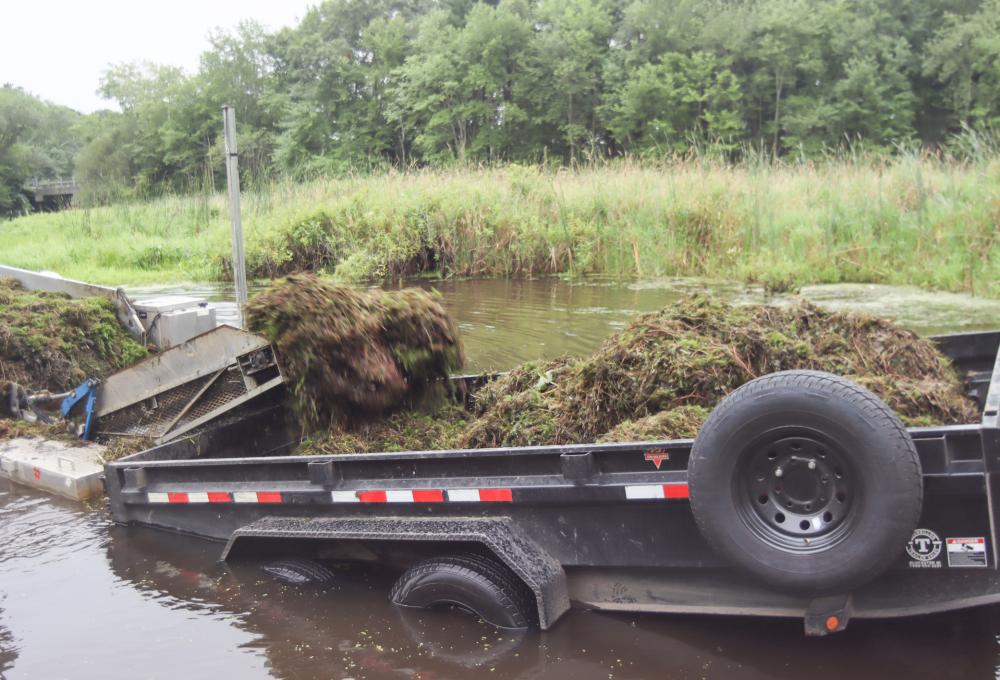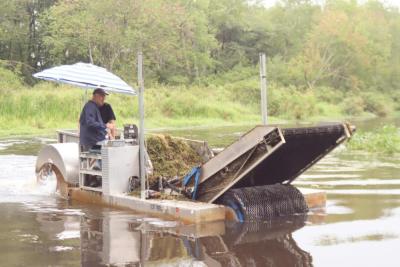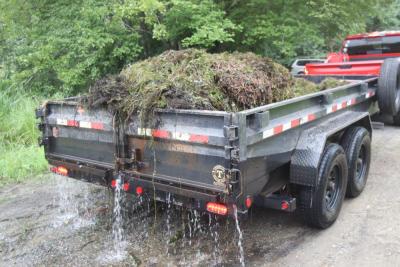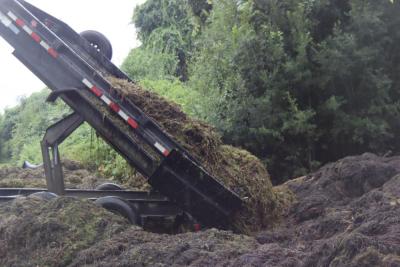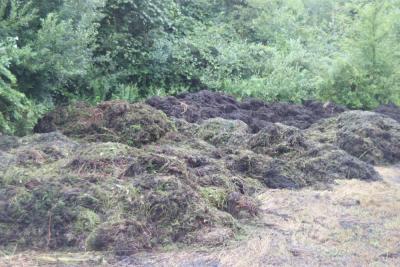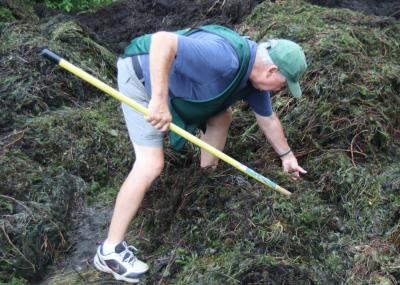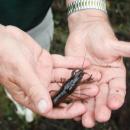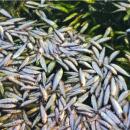Milfoil: What's killing Nemasket River herring
MIDDLEBORO — “This job right here is for the herring,” said Tom Barron as he raked through a dense pile of milfoil, searching for any sign of life that might be trapped in it.
Barron is the vice president of the Middleboro-Lakeville Herring Fishery Commission. Tuesday, Aug. 6 was the last of several days that he and other volunteer members of the commission spent working on a weed removal project on the Nemasket River.
Milfoil, a dense, invasive weed that is clogging up portions of the river, is posing a significant problem for the herring, he said.
“The herring are the basis of the food chain. If our herring fishery collapses, it will collapse the fishery on the whole East Coast,” said Barron, who explained that the weed chokes off river flow, trapping the fish during their return trek to the ocean from the Assawompset Pond Complex.
It’s the reason behind the large number of fish kills — a term used to refer to the death of fish in masses — that have occurred in recent years, said Barron.
He explained that milfoil proliferates when water levels are low and grows out like a dense mat on the surface of the river.
“Because the weeds are so thick, it basically blocks out the current so the herring don’t have a clear [path] to the ocean,” he said. “They get stuck in these invasive mats of thick, thick milfoil. During the day, these plants give off oxygen and at night they give off carbon dioxide, which causes the fish kill.”
This year, the Fishery Commission focused on removing weeds along a three-mile stretch of the river. The project has been ongoing since 2021.
Weeds are removed using a machine called an Eco-Harvester, which pulls up the plant’s root from the riverbed, explained Tucker Hauck, who works for C&D Underwater, the company contracted for the job.
Piles and piles of weeds are then transported on a truck bed and dumped on lands donated by a Middleboro family.
There, the seven volunteers of the Fishery Commission take turns sifting through the vegetation, searching for aquatic creatures that may have gotten pulled up by the Eco-Harvester by mistake.
Volunteers work with turtle biologist John Crane, who makes sure no turtles become casualties of the effort.
The entire project is funded through a grant from the South Eastern Regional Planning and Economic Development District, said Barron, who explained that milfoil proliferation is far from solely a Nemasket River problem — it's happening nationwide.
And it’s one fishermen have a huge role in, said Barron, who is a fisherman himself.
One of the principal ways milfoil spreads is through plant fragmentation. A piece of the plant breaks off and gets stuck on a boat or piece of fishing gear and spreads to another body of water, he said.
It also spreads through seed pods that settle in the riverbed and through the fecal matter of waterfowl.
One way to prevent the spread of milfoil is to put up a boat washing station, which is something Barron has suggested for Long Pond in Lakeville.
At this time, these weed removal projects are the only way to ameliorate the situation in the Nemasket River, he said.
According to Barron, there are other methods to kill milfoil that involve chemical treatments or using a tarp to block the weed’s access to sunlight, but using the Eco-Harvester is the “least invasive.”



